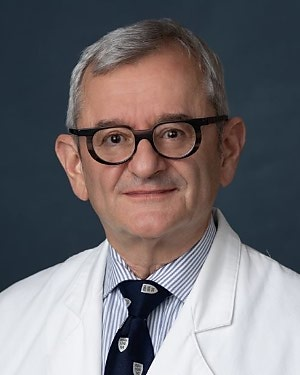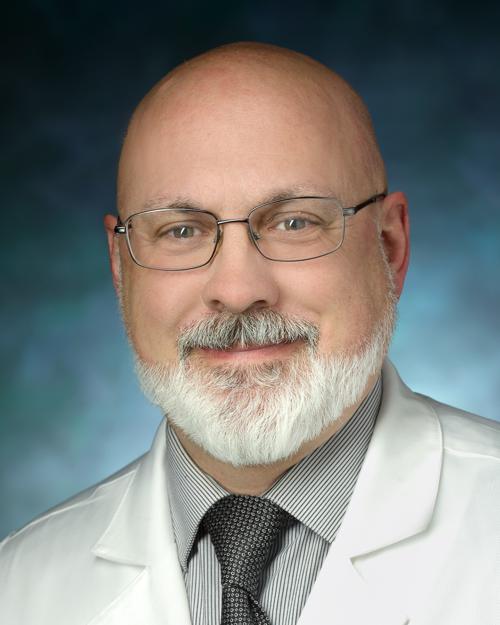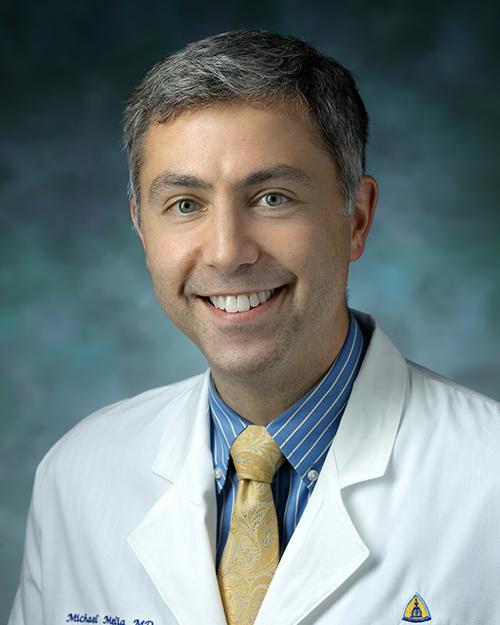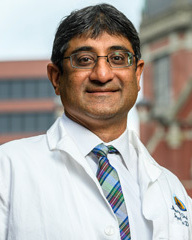Research Lab Results
-
Philip Smith Lab
Work in the Philip Smith Lab explores several key topics within the field of sleep medicine. We investigate the role of obesity and neural control in sleep-disordered breathing as well as the impact of metabolic function on sleep apnea. We also research the ways in which HIV and its treatments impact a patient’s sleep. Our studies have included the effects of HIV and highly active antiretroviral therapy (HAART) on both sleep and daytime function as well as the relationship between systemic inflammation and sleep apnea in men with HIV.
-
Joseph Cofrancesco Jr. Lab
Research in the Joseph Cofrancesco Jr. Lab focuses primarily on health care for HIV-positive patients. Our recent studies have explored topics such as HIV antiretroviral treatments, HIV resistance and the long-term complications of HIV treatment. In addition, we are part of the U.S. Fat Redistribution and Metabolism (FRAM) study and have had a long-standing involvement in projects that examine metabolic and fat complications in Thailand.
-
Jonathan Golub Lab
Research in the Jonathan Golub Lab focuses primarily on the epidemiology of tuberculosis (TB), specifically in patients infected with HIV. We work with the CDC to explore potential delays in TB diagnoses as well as the risk factors that contribute to death from TB in the United States. Our research also includes ongoing studies of HIV and TB patients in Brazil and South Africa.
-
Christine Durand Lab
Dr. Christine Durand, assistant professor of medicine and oncology and member of the Johns Hopkins Kimmel Cancer Center, is involved in clinical and translational research focused on individuals infected with HIV and hepatitis C virus who require cancer and transplant therapies. Her current research efforts include looking at outcomes of hepatitis C treatment after solid organ transplant, the potential use of organs from HIV-infected donors for HIV-infected solid organ transplant candidates, and HIV cure strategies including bone marrow transplantation. Dr. Durand is supported by multiple grants: • R01 from the National Institute of Allergy and Infectious Diseases (NIAID) to study HIV-to-HIV organ transplantation in the US. • K23 from the National Cancer Institute (NCI) to study antiretroviral therapy during bone marrow transplant in HIV-1 infection. • U01 from the NIAID to study HIV-to-HIV deceased donor kidney transplantation. U01 from the NIAID to study HIV-to-HIV deceased donor liver transplantation.
-
Cynthia Sears Laboratory
Work in the Cynthia Sears Laboratory focuses on the bacterial contributions to the development of human colon cancer and the impact of the microbiome on other cancers and the therapy of cancer. The current work involves mouse and human studies to define how enterotoxigenic Bacteroides fragilis, pks+ Escherichia coli, Fusobacterium nucleatum, biofilms and the colonic microbiota induce chronic colonic inflammation and colon cancer. Prospective human studies of the microbiome and biofilms in screening colonoscopy are in progress as are studies to determine if and how the microbiome impacts the response of individuals with cancer to immunotherapy and other cancer therapies.
-
Bowditch Research Group
Bowditch Research Group conducts research regarding speech discrimination in background noise, cochlear implants and osseointegrated hearing devices
-
Bryan Lau Lab
The Bryan Lau Lab is interested in epidemiological and statistical methods for cohort studies and the application of these methods primarily to HIV cohort studies. We’re particularly interested in developing new methods and using approaches from other disciplines as novel solutions to specific epidemiologic issues. -
Yukari Manabe Lab
Investigators in the Yukari Manabe Lab evaluate the accuracy of rapid, point-of-care diagnostics for HIV, tuberculosis and related infectious diseases in resource-limited settings particularly sub-Saharan Africa and examine the impact of diagnostic interventions on disease detection and patient outcomes. The team also conducts operational and translational research in tuberculosis and HIV co-infection.
-
Michael Melia Lab
Research in the Michael Melia Lab focuses primarily on nocardia infections, Lyme disease and hepatitis C. Our studies have included key topics such as risk factors for incident infections during hepatitis C treatment, racial differences in eligibility for hepatitis C treatment and misdiagnosis of Lyme arthritis using the Borrelia burgdorferi immunoblot testing method. We also have a longstanding interest in medical education and work on curriculum to improve the quality of education for medical students and interns.
-
Maunank Shah Lab
Work in the Maunank Shah Lab focuses on infectious disease modeling and health economics, and seeks to investigate new strategies for diagnosing HIV and tuberculosis (TB) in areas with limited resources, both domestically and abroad. Our primary focus is TB diagnostics, with studies examining the diagnostic test accuracy, cost-effectiveness and programmatic impact of emerging diagnostics. We have developed mobile health initiatives to incorporate video-based therapy for TB treatment, and we have a longstanding interest in interventions that help to reduce or prevent HIV transmission.


